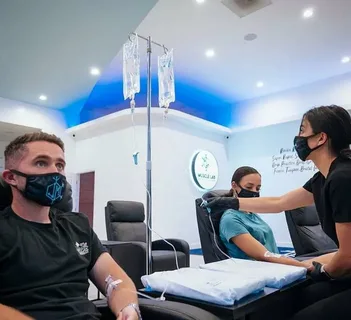In today’s fast-paced world, sleep disorders have become increasingly common, impacting millions of individuals globally. A sleep doctor, also known as a sleep medicine specialist or somnologist, plays a crucial role in diagnosing and treating a variety of sleep-related conditions. From insomnia to sleep apnea, these medical professionals are dedicated to improving the quality of life for their patients by addressing sleep issues. This article delves into the importance of a sleep doctor, the conditions they treat, and how they help individuals achieve better sleep.
What is a Sleep Doctor?
A sleep doctor is a medical professional who specializes in the diagnosis, treatment, and management of sleep disorders. They typically hold advanced training in sleep medicine, often having completed specialized education beyond their primary medical degrees, such as a residency or fellowship in sleep medicine. These professionals are equipped to handle a wide range of sleep-related issues, offering personalized treatment plans tailored to each patient’s specific needs.
Conditions Treated by Sleep Doctors
Sleep doctors handle a variety of conditions that affect the quality and duration of sleep. Some of the most common disorders include:
1. Insomnia
Insomnia is one of the most prevalent sleep disorders, characterized by difficulty falling asleep, staying asleep, or waking up too early without the ability to return to sleep. Sleep doctors work to identify the root cause of insomnia and create treatment plans that may include cognitive-behavioral therapy, medication management, or lifestyle changes.
2. Sleep Apnea
Sleep apnea is a condition where breathing repeatedly stops and starts during sleep. Obstructive sleep apnea (OSA) is the most common form, where the airway is blocked due to relaxed throat muscles. Sleep doctors often recommend treatments like continuous positive airway pressure (CPAP) therapy or in some cases, surgical intervention.
3. Restless Leg Syndrome (RLS)
Restless Leg Syndrome is a neurological disorder causing an uncomfortable, often painful sensation in the legs, typically during the evening or at night. Sleep doctors evaluate symptoms and may prescribe medications or suggest lifestyle changes to improve sleep quality for those suffering from RLS.
4. Narcolepsy
Narcolepsy is a chronic neurological disorder that affects the control of sleep-wake cycles. Individuals with narcolepsy experience excessive daytime sleepiness, sudden sleep attacks, and sometimes sleep paralysis. A sleep doctor works closely with patients to manage symptoms, often using medication and sleep hygiene practices.
How Sleep Doctors Help Improve Sleep Quality
Sleep doctors employ a variety of diagnostic tests and treatment methods to assist their patients. These include:
Polysomnography (Sleep Study)
A common diagnostic tool used by sleep doctors is polysomnography, where patients undergo an overnight study to monitor brain waves, heart rate, breathing patterns, and muscle activity. This information helps the doctor pinpoint specific sleep disorders.
Personalized Treatment Plans
Once a diagnosis is made, a sleep doctor develops a tailored treatment plan, which may include lifestyle changes, therapy, medications, or the use of specialized equipment like CPAP machines or other devices that support healthy sleep.
Patient Education and Support
Beyond treatment, sleep doctors provide education on sleep hygiene and help patients establish healthy sleep routines to ensure lasting improvements in sleep quality.
The Importance of Seeing a Sleep Doctor
The effects of poor sleep go far beyond just feeling tired. Chronic sleep disorders can lead to long-term health issues, including cardiovascular problems, mental health concerns, and reduced productivity. A sleep doctor’s expertise ensures that patients receive comprehensive care and are guided toward achieving restful, restorative sleep.
For anyone struggling with sleep disturbances, consulting a sleep doctor can be the first step toward reclaiming a healthy sleep pattern and improving overall well-being.



